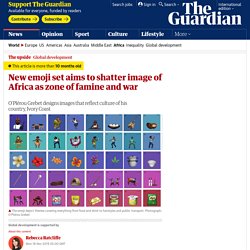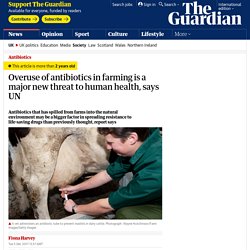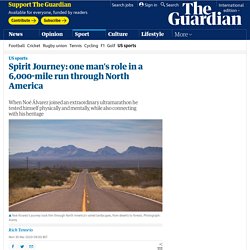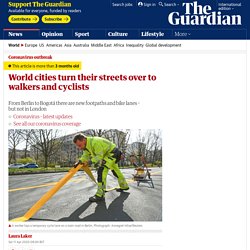

Yabba dabba do! How The Flintstones set the stage for the adult animation boom. Anyone who was a child in the 1970s onwards probably remembers The Flintstones as a Saturday morning cartoon staple, a yabba-dabba-doo time of prehistoric frolics and gleefully anachronistic dinosaurs.

But when it initially aired 60 years ago, the adventures of Fred and Wilma, the titular Stone Age family, were aimed at adults. They are the direct ancestors of the golden age of adult-oriented animation we enjoy today. Black, white, avant-garde, atheist – how did choirs become so cool? I have joined a choir by mistake.

This time last year, I was adamant I could not sing. But now, here I am, with 15 other people in the Cafe Oto Experimental choir in London, and we are each singing one long, even note, in whatever pitch comes naturally: this is the composer Pauline Oliveros’s Sonic Meditations. You are probably imagining a cacophony of bum notes, but it is the opposite. Our voices fall in together in a huge harmonious chorus that fills the space with beautiful sound. New emoji set aims to shatter image of Africa as zone of famine and war.
In January 2018, O’Plérou Grebet set himself a challenge.

For every day of the year, the graphic design student, then aged 20, decided to design an emoji that reflected the culture of his home country, Ivory Coast, and the wider region of West Africa. “I wanted to create a project to promote African cultures to change the image the Western media have of Africa: hunger, poverty and wars,” he said. “I wanted to show a different and positive side.” Adopting a different theme each week, he shared his daily designs on Instagram. He started with food and drink – a topic that everyone identifies with. He didn’t tell his teachers or classmates at Abidjan’s Institute of Sciences and Communication Techniques about the project – but people soon noticed as it grew in popularity online. An advertising agency sent Grebet an Apple Mac so that he could create designs for iOS as well as Android phones. Sky shepherds: the farmers using drones to watch their flocks by flight. A shepherd is out tending a flock when a presence appears above.

It descends from the sky and communicates vital information. It may sound like a nativity scene, but for an increasing number of farmers it’s a daily occurrence – and that celestial being is a drone. Corey Lambeth, a New Zealand farmer, originally purchased a drone for photography, but he quickly realised the device had more practical applications. Overuse of antibiotics in farming is a major new threat to human health, says UN. The overuse of antibiotics in farming has been highlighted as one of the biggest emerging threats to human health, spreading resistance to vital drugs and endangering millions of lives.

Antibiotics used on farms can spill over into the surrounding environment, for instance through water run-off and slurry, according to a report from the UN’s environment body, with the potential to create resistance to the drugs across a wide area. This environmental diffusion of powerful medicines, to which bacteria are increasingly gaining resistance, is rendering even the drugs of last resort ineffective in human treatment, and may be a bigger factor in spreading resistance than had been thought. Previous concerns focused on resistance to the drugs among livestock and farm workers, but the UN report says the problem goes much further and is much more dangerous.
When antibiotics are used on farm animals, the preferred delivery method is often via the livestock’s food and water supplies. Spirit Journey: one man's role in a 6,000-mile run through North America. While jogging on the spot, Mexican-American runner Noé Álvarez showed his passport to the border agent in Nogales, Arizona.

Álvarez was participating in the Peace and Dignity Journeys (PDJ), an ultramarathon for runners of indigenous background like himself. Space austerity: plane seats and change rooms needn't bring out our worst. If you don’t normally subscribe to the idea that hell is other people, you might after a long-haul flight in economy class.

Seats reclined up against your face, legs manspreading into your tiny space and – my personal misanthropy fuel – a stranger’s bare feet poking in between the seats. Thanks to the internet and the ubiquity of air rage videos on social media, you don’t even have to be flying to be drawn into this maddening coupling of deep discomfort and pure intimacy with strangers. In the latest one, a woman sits with her seat reclined on an American Airlines flight, filming over her shoulder. World cities turn their streets over to walkers and cyclists. A growing number of cities around the world are temporarily reallocating road space from cars to people on foot and on cycles to keep key workers moving and residents in coronavirus lockdown healthy and active while socially distancing.

Limited urban park space and leisure trails are under increasing pressure, with many closed to prevent the spread of coronavirus, further limiting urban dwellers’ access to outdoor space. While traffic has dropped around the world, and with it nitrogen dioxide levels, there are widespread concerns over a rise in speeding drivers endangering those walking and cycling. Evidence suggests air pollution, including from exhaust fumes, significantly harms the survival chances of those with Covid-19. Ok Zoomer: how seniors are learning to lead more digital lives. “I used to look at some people using WhatsApp video and think, I wonder what that’s all about,” says 74-year-old Jillian Cheetham.

“Now, you know, I’ve discovered it’s pretty easy.” Her book club, which has been going for 10 years, has just had its first Zoom meeting. “It was lovely to be together again and feel that we can keep on going,” Cheetham says. “There’s no wine and cheese on the table or tea and cake at the end of it, it’s not as much fun when it’s virtual. But we’re discussing a book we all really enjoyed. A few short weeks ago, that would have been unthinkable. “Technology wasn’t really relevant until perhaps the last 25% of my career,” says Cheetham, a former high school teacher, business owner and financial industry professional. Extreme conditions, loud birds and fresh food by boat – could you live on a remote island?
After supper, while Eddie Stubbings was washing up, huge flocks of puffins would come whirling past his kitchen window.

Later, when the sun had finally dipped into the ocean, the Skomer night filled with the bizarre caterwauling of 350,000 pairs of manx shearwaters, which fly under the cover of darkness to burrows dotted across the small island. “Living on the island was absolutely amazing,” says Stubbings, 40. Alongside his partner, Bee Bueche, 41, he has completed six years working on Skomer, 720 acres of seabird-populated rocks off the Pembrokeshire coast. 'It's pretty easy to talk instead': pupils react to French phone ban. At the end of lessons at Claude Debussy middle school in Paris, a classical music jingle played instead of a bell and teenagers poured out of the gates. Several 13-year-olds quickly reached into their bags to check their mobile phones, which had been switched off for eight hours. Nearly a million more young adults now live with parents – study.
Nearly a million more young adults are living with their parents than was the case two decades ago, a study has found. The figures, in a report by the right-leaning thinktank Civitas, will fuel concerns that too little is being done to protect young people from Britain’s housing crisis. The proportion of people aged 20 to 34 who live with their parents has risen from 19.48% in 1997, equating to 2.4 million people, to 25.91% in 2017, equating to 3.4 million. The report says the findings have profound implications for the government’s housebuilding targets. It also notes a “collapse in single living” among those who do move out of their parental home, as young people are now far more likely to be living with partners or friends. “The data is bearing out what we feel anecdotally to be the case,” said Daniel Bentley, the editorial director of Civitas.
The study used data from the Office for National Statistics to look at average household sizes over long periods. Finland is the happiest country in the world, says UN report. Finland has overtaken Norway to become the happiest nation on earth, according to a UN report. The 2018 World Happiness Report also charts the steady decline of the US as the world’s largest economy grapples with a crisis of obesity, substance abuse and depression. The study reveals the US has slipped to 18th place, five places down on 2016. The top four places are taken by Nordic nations, with Finland followed by Norway, Denmark and Iceland.
P is for pterodactyl, T is for tsunami: the 'worst alphabet book' becomes a bestseller. Sweden: how cash became more trouble than it’s worth. After eight years living in Sweden, coins and notes barely feel like money any more. Last month, my daughter lost a front tooth. Citizenship for sale: how tycoons can go shopping for a new passport. Two Indian families opt to keep sons who were swapped at birth. Would you take £1m now, or £1,000 a week for the rest of your life? Why Iceland is the best place in the world to be a woman. Heatwave made more than twice as likely by climate change, scientists find. The heatwave searing northern Europe was made more than twice as likely by climate change, according to a rapid assessment by scientists.
The result is preliminary but they say the signal of climate change is “unambiguous”. Scientists have long predicted that global warming is ramping up the number and intensity of heatwaves, with events even worse than current one set to strike every other year by the 2040s. 'He’s very sorry': how a 12-year-old tricked his family and ran away to Bali. Meat and vegetable vending machines do roaring trade in coronavirus crisis. Vending machines for the Sunday roast, fish to your door and salads grown in car parks – British farmers and food producers are finding new ways to get their produce to the table during lockdown, changes that may yield benefits long after restrictions ease.
Many UK farmers have been hard hit by the coronavirus crisis, despite the strong demand for fresh food. Before the lockdown, half of all food and drink was consumed outside the home, and switching from supplying big catering companies and distributors has been proving difficult. Home Office tells man, 101, his parents must confirm ID. Pop-up bike lanes help with coronavirus physical distancing in Germany. 'It's a photo orgy': is Yosemite's rare firefall too beautiful for its own good?
Last male northern white rhino is put down. 'The Netflixisation of academia': is this the end for university lectures? ‘No school, no skating’: the Indian skate park bringing children together. Janwaar castle. Janwaar Castle - The Rural Changemakers. The care home residents proving it's never too late to learn a new language.